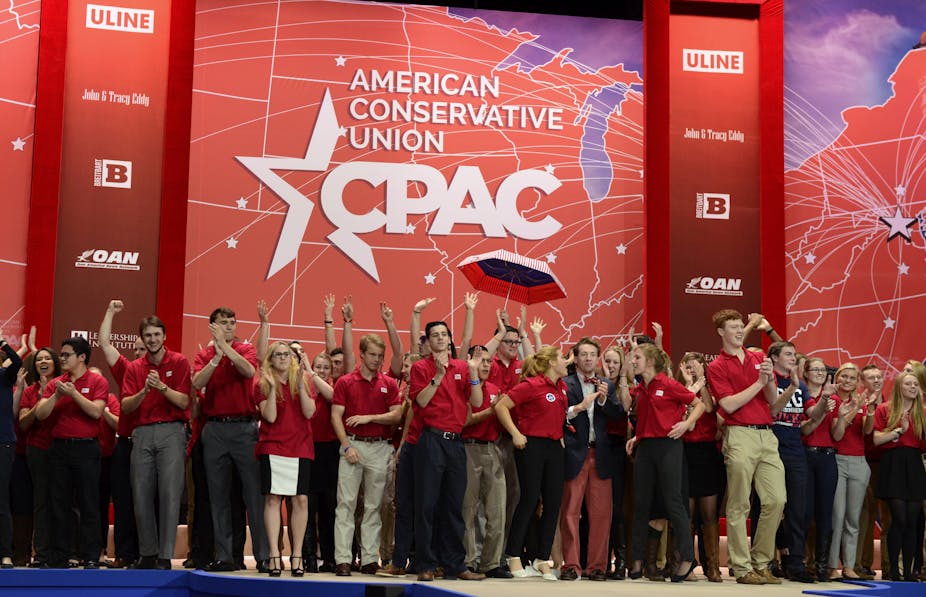Last week the race for the Republic presidential nomination was kicked off in earnest by the Conservative Political Action’s annual Conference.
Yes, they all, predictably, want to “save our country” from the perils posed by President Obama’s intrusive government bureaucracy and the accompanying limits it supposedly imposes on our freedom.
The attendees, echoing Rudy Giuliani’s controversial comment, all believe that they, unlike Obama and by extension his supporters, love America. They are the only ones who should be entrusted with governing it.
But beyond the usual clarion calls, intended to appeal to the audience of diehard libertarians in attendance, the gathering in suburban Maryland proved revealing in at least three dimensions.
Foreign policy comes to the fore
The first is that the early signs are that foreign policy will be more important than usual in next year’s presidential election.
This is explained by several factors.
There is now a pervasive sense that finances are in short supply: America has to make a real choice between spending money on foreign policy or investing more at home. The phenomenal growth of the Chinese economy has fueled debates about China as an emergent threat to the United States. The wars in Afghanistan and Iraq have failed to achieve their goals and have cost much in terms of blood and treasure. Al-Qaeda successor terrorist groups are proliferating in “ungovernable” territories, most notably in Iraq, Syria and Yemen. And, finally, there is a widespread restlessness about our inability to control the behavior of many governments – principally Iran and Russia -and what that failure says about America’s global leadership.
Americans are looking abroad
The second thing the conference revealed is that Republicans believe that the average American beyond the Washington bubble really cares about the degree and form of America’s engagement with the rest of the world.
We are, apparently, frustrated. We supposedly blame President Obama and are allegedly deeply disgruntled with his policies.
So much so that the simple, well-known adage, “it’s the domestic economy stupid,” won’t apply next year. Indeed, the Republican candidates portrayed next year’s election as a historic opportunity to reset US foreign policy.
Some constituencies, we are told, are particularly aggravated - and can be pealed off from Obama’s winning coalition.
The Cuban community, the Republican candidates suggested, is unhappy with the new opening to Cuba. The Jewish community is pained by the administration’s fissure with Israel. Cubans and Jews are, it was said, deeply divided over Obama’s policies. At least some of them may be ready to vote for a Republican candidate who addresses their concerns. And, according to some candidates, we are all deeply concerned about the threat posed by ISIS and the Muslim community’s role in the fight against it.
Of course, there is more than a little wishful thinking here. But electoral politics is about building a winning coalition. Republicans calculate that they can peal off the Cuban community from other Hispanics and a segment of the Jewish community as part of a “divide and conquer” strategy in building a winning coalition. Attracting some votes from these groups (and the funding that goes with it) is better than none at all.
Opposing views of the world
The third thing we learn is that foreign policy doesn’t just divide the two main political parties. It fragments within the parties in a way rarely seem in modern times, particularly among Republicans.
They may unanimously denounce the president’s current foreign policies. But they vehemently disagree when it comes to the question of what should be done instead.
The spectrum is enormous. At one extreme, Rand Paul returned to this isolationist grassroots Tea party theme at CPAC, advocating greater disengagement from America’s foreign policy commitments. He prefers to focus on more border controls coupled with domestic reforms than foreign engagement. By implication, this means cutting the military budget from its current level of approximately 3.8% of GDP.
In contrast, at the other extreme, Rick Santorum exhorted the benefits of full-blooded engagement. He compared the threat posed by ISIS to that of fascism in the 1930s, and said “If ISIS wants to establish a 7th century caliphate, well let’s oblige them by bombing them back to the 7th century.” He may justifiably be regarded as a fringe candidate at this point. But his exuberant advocacy of the use of overwhelming force mirrors the views of more prominent candidates like Scott Walker and – more modestly - Jeb Bush.
We probably shouldn’t read too much into the fact that Paul won the straw poll with over 25% of the vote, as he did for the prior two years, and that Jeb Bush finished fifth with 8%.
As a beauty contest, CPAC’s voters represent only one wing among Republicans, and certainly not the more moderate establishment. But the result confirms the view that foreign policy, along with immigration reform, will be hotly contested in the primaries. And all this before the official primary campaign has even got underway.

